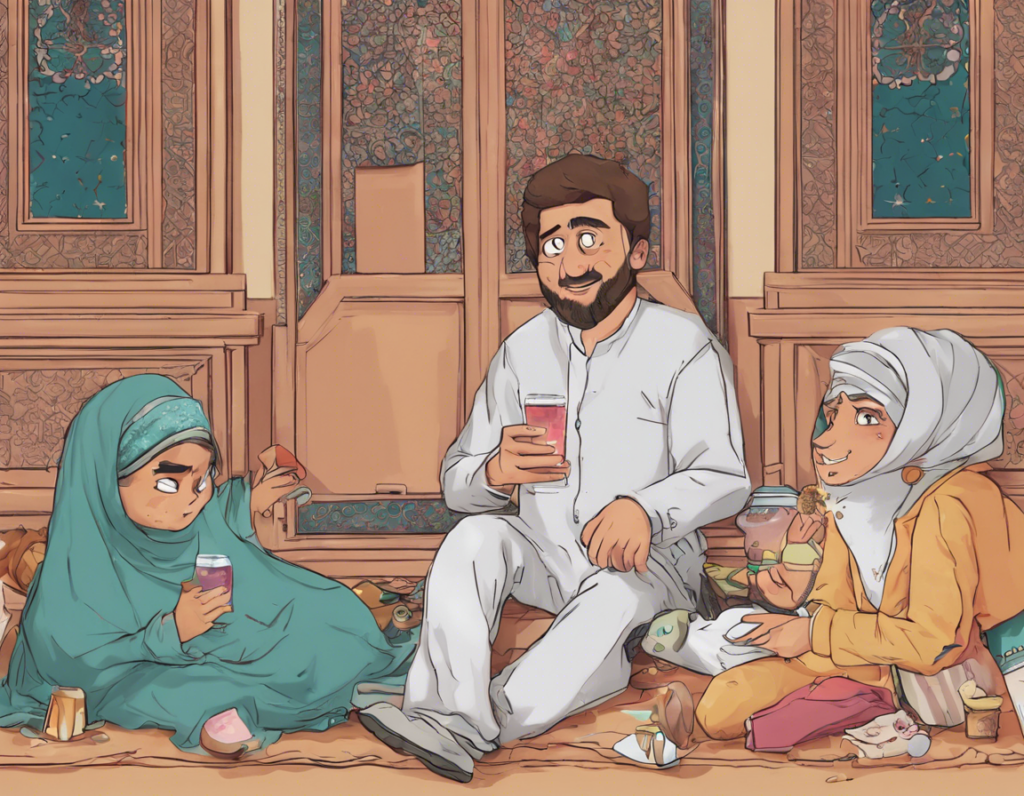The festive season can often bring joy, excitement, and a sense of togetherness as people come together to celebrate holidays like Eid. However, once the festivities are over, many individuals may experience what is commonly known as the post-holiday blues, a period where feelings of sadness, loneliness, and let-down set in. This phenomenon can be particularly prevalent after Eid, a significant celebration in the Muslim community marked by prayers, feasting, and social gatherings.
Understanding the Post-Holiday Blues
The post-Eid period can be challenging for many people as they transition from a time of heightened spirituality, connection, and celebration back to their daily routines. Factors contributing to these post-holiday blues may include:
1. Loss of Connection
After spending time with loved ones and engaging in communal prayers and celebrations during Eid, returning to everyday life can lead to feelings of isolation and loneliness.
2. Shift in Routine
The disruption of normal schedules and responsibilities during the holiday season can make it hard to return to the usual routine, leading to a sense of disorientation and unease.
3. Pressure and Expectations
The pressure to create perfect holiday experiences, coupled with high expectations for joy and fulfillment, can result in disappointment when reality fails to meet these ideals.
Strategies for Coping with Post-Holiday Blues
While it’s normal to feel a bit down after the excitement of Eid, there are several strategies that can help individuals navigate this period and transition back to their regular daily lives with emotional resilience. Here are some tips for coping with the post-holiday blues:
1. Practice Self-Compassion
Be kind to yourself during this time and acknowledge that it’s okay to feel a little low after the holiday celebrations. Take care of your physical and emotional needs by getting enough rest, eating healthily, and engaging in activities that bring you comfort.
2. Maintain Connections
Stay connected with friends and family members even after Eid is over. Reach out to loved ones through phone calls, text messages, or social media to preserve the sense of community and togetherness that is prevalent during the holiday season.
3. Establish a Routine
Create a post-holiday routine that incorporates elements of self-care, productivity, and relaxation. Setting daily goals and scheduling activities can provide structure and purpose, helping you ease back into your regular schedule more smoothly.
4. Reflect on the Meaning of Eid
Take time to reflect on the spiritual significance of Eid and how its teachings can be integrated into your daily life beyond the holiday season. Engage in prayer, meditation, or acts of charity to maintain a sense of spiritual connection and fulfillment.
5. Engage in Mindful Activities
Practicing mindfulness through activities like yoga, journaling, or nature walks can help you stay present and grounded, reducing feelings of anxiety and sadness associated with post-holiday blues.
6. Set Realistic Expectations
Recognize that it’s normal for the holiday season to come with both highs and lows. Avoid putting pressure on yourself to maintain a constant state of happiness and allow yourself to experience a range of emotions, including sadness and nostalgia.
7. Plan for Future Gatherings
Look ahead to upcoming occasions or events that you can anticipate and prepare for, such as family gatherings, birthdays, or community celebrations. Having something to look forward to can boost your mood and motivation.
Frequently Asked Questions (FAQs)
1. Is it common to feel sad after Eid is over?
Yes, it is common for individuals to experience a mix of emotions, including sadness, after the festive period of Eid comes to an end.
2. How long do post-holiday blues typically last?
The duration of post-holiday blues can vary from person to person. For most individuals, these feelings tend to diminish within a few days to a week as they readjust to their daily routines.
3. When should I seek professional help for post-holiday blues?
If feelings of sadness or depression persist for an extended period, interfere with daily functioning, or escalate in severity, it may be advisable to seek support from a mental health professional.
4. Can staying connected with friends and family help alleviate post-holiday blues?
Yes, maintaining social connections and reaching out to loved ones can provide comfort, support, and a sense of belonging, which can help mitigate feelings of loneliness and sadness.
5. What role does self-care play in coping with post-holiday blues?
Engaging in self-care practices such as adequate sleep, nutrition, exercise, and relaxation activities can help individuals manage stress, boost mood, and foster emotional well-being during the post-holiday period.
6. How can mindfulness techniques help with post-holiday blues?
Practicing mindfulness techniques can help individuals stay present, calm, and mindful of their emotions, reducing negative thoughts and promoting a sense of inner peace and balance.
7. Why is it important to set realistic expectations during the post-holiday period?
Setting realistic expectations allows individuals to acknowledge and accept a range of emotions, including both positive and negative feelings, without imposing undue pressure on themselves to maintain a constant state of happiness.
8. What are some healthy ways to cope with nostalgia after Eid?
Engaging in activities that evoke positive memories, such as looking at photos or videos from Eid celebrations, sharing stories with loved ones, or incorporating traditions into daily life, can help individuals cope with nostalgia in a healthy manner.
9. How can staying connected to the spiritual teachings of Eid help with post-holiday blues?
Reflecting on the spiritual significance of Eid and incorporating its teachings, such as gratitude, compassion, and generosity, into daily practices can provide individuals with a sense of purpose, connection, and emotional fulfillment beyond the holiday season.
10. Are there support groups or resources available for individuals experiencing post-holiday blues?
Support groups, online forums, and mental health resources can offer individuals a platform to share their experiences, seek guidance, and access tools and strategies for coping with post-holiday blues in a supportive and understanding environment.
